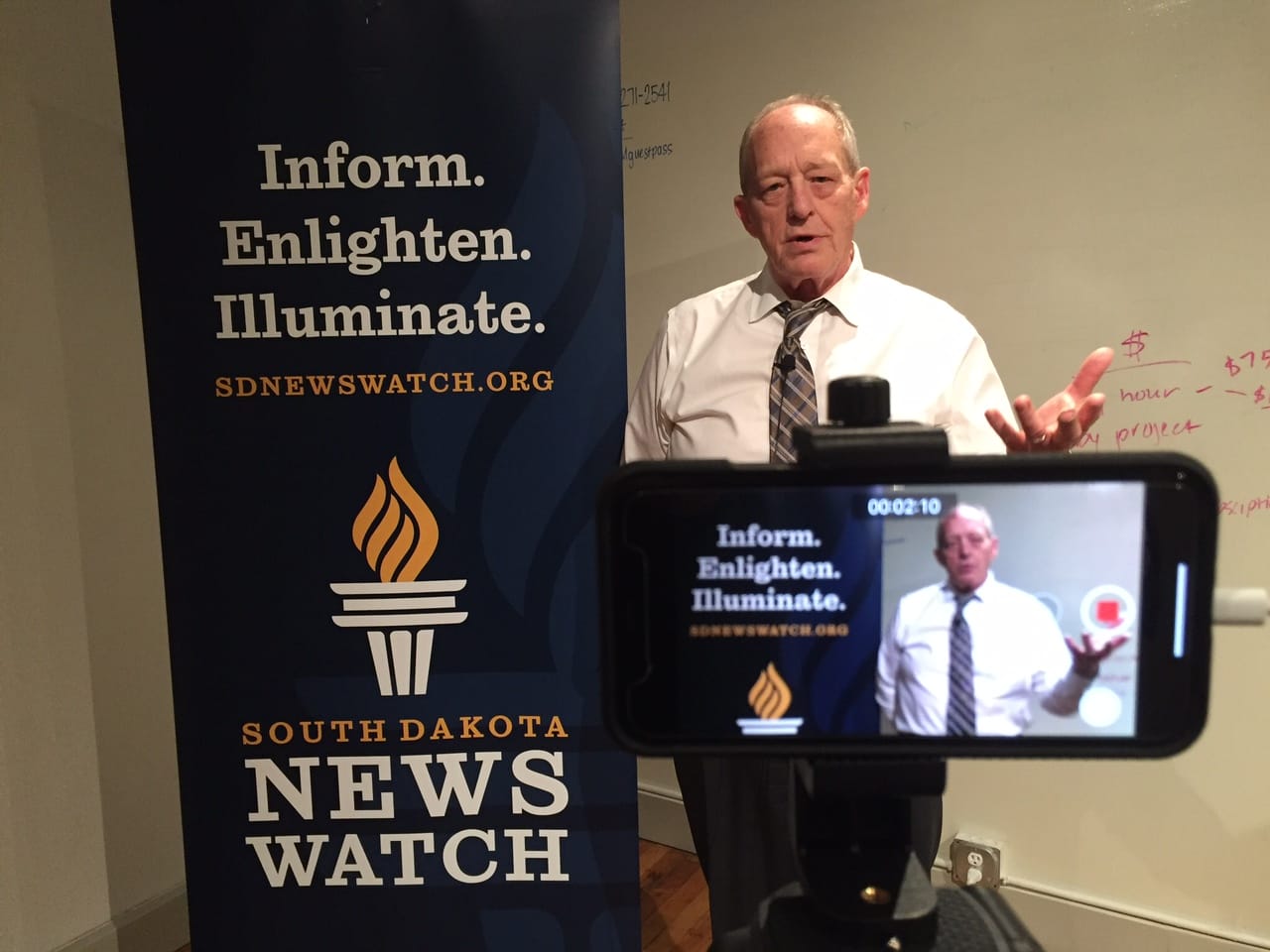To our supporters:
How do you measure the impact of good journalism on a democracy?
Americans have been debating that provocative question as long as our country has been around and it’s still hard to answer. But the times we are in now offer at least two ways to think about it.
First, we are all beginning to understand the impact of bad journalism, which is shaped by built-in bias, shallow reporting and a disregard for the facts. If you immediately think of the 24-hour cable news cycle, you’re certainly not alone.
Few things have contributed so much to the polarized debate that marks our culture today. Angry talking heads, take a bow.
Sadly, we also are seeing more clearly the impact of no journalism on our country. In communities across the nation, the financial pressures on traditional newsrooms have eroded the ranks of reporters who ask tough, sometimes uncomfortable questions. That means fewer thoughtful, well-sourced stories that prompt meaningful civic debate.
Here at South Dakota News Watch, we believe these intersecting trends pose troublesome long-term consequences for our nation and, in some ways, our beloved state.
As much as we’d like to think South Dakota is an island of civility and mutual respect, for example, it’s not hard to detect signs pointing to a different conclusion. While many South Dakota newsrooms have held firm in the face of what clearly is a media revolution, we believe that serious, long-form journalism examining statewide issues is on the endangered list.
Those realities lie close to the heart of why we launched South Dakota News Watch in February and why, week after week since, we have looked with pride at the quality work produced by our staff: reporter Bart Pfankuch and executive director Maricarrol Kueter.
In the northern Black Hills, Pfankuch reported recently that the tiny town of Rochford has become the center of a growing debate over a proposal to mine for gold.
A Canadian prospecting company has begun drilling to test its theory that large quantities of gold lie beneath the rocky hillsides around Rochford. The drilling has set off a wave of public opposition. Our journalists told that story in a way that attracted attention statewide.
We also reported, for the first time, that after the 2016 limit on usury rates and virtual collapse of the payday lending industry, South Dakotans may have found a new source of high-interest short-term loans. They’ve gone online, where no one is watching.
And in the latest article, Pfankuch revealed the little-known practice that is stirring discontent throughout eastern South Dakota: Some large animal feeding operations are piping waste through ditches and along roads – often with county approval.
All these reports, and others, can be found at www.sdnewswatch.org.
All are deeply reported stories that go well beyond the heated exchanges of cable television – good journalism, originating from no point of view, that informs, enlightens and illuminates.
We are proud of that.
And we are proud that readers across the state are responding to our efforts. Keep those notes of thanks – or even criticism – coming.
South Dakota News Watch is, simply, a public trust, a non-profit venture motivated by the principle that democracy depends on an informed citizenry.
We’re in this together.
Some of you, recognizing the scarcity of fair, intelligent reporting on complex topics, have provided financial support for this, our pilot year. Thank you.
You know that good journalism doesn’t just happen; it carries a price.
If you haven’t donated, please consider supporting South Dakota News Watch. Whether your tax-deductible gift is $100, $500 or more, consider it an investment in quality journalism that makes a difference right here at home.
For more information, press the DONATE button at the top right corner of the www.sdnewswatch.org website home page.
Our pledge is to provide exceptional journalism, week in and week out, that meets your high standards and serves the public interest.
On behalf of our board of directors and staff, thanks for being a part of South Dakota News Watch.
Randell Beck
Jack Marsh
Co-founders and co-chairs
Turbak Berry joins SDNW Board of Directors
Nancy Turbak Berry, a Watertown attorney, former state senator and longtime advocate of open government, has joined the board of South Dakota News Watch.
Berry’s education began in a one-room schoolhouse in Kranzburg. She graduated from Watertown High School and obtained her undergraduate degree from Harvard University. She received her law degree from the University of California.
As a state senator, Berry was known as a forceful advocate of legislation that sought to open access to state government. In 2008 she received the Eagle Award from the South Dakota Newspaper Association, honoring her efforts on behalf of government transparency.
Berry practices law in Watertown with her two sons.
South Dakota News Watch is governed by a 10-member board of directors representing media, business and the law. “We are thrilled and honored to have Nancy join the board at this time,” said board co-chair Jack Marsh. “Like our other directors, she brings a wealth of experience and insight to this important effort.”





